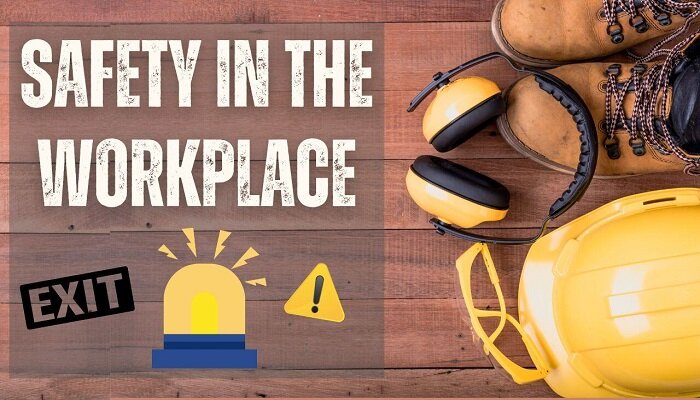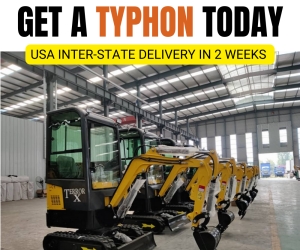How to Improve Visibility and Safety in Warehousing & Manufacturing Facilities
Ensuring visibility and safety in warehousing and manufacturing facilities is paramount to maintaining operational efficiency and protecting workers. These industrial environments are often fraught with challenges such as dust, water, and chemical exposure, which can complicate the maintenance of clear pathways, egresses, and adequate lighting. Facility managers and safety officers must navigate these obstacles to […] The post How to Improve Visibility and Safety in Warehousing & Manufacturing Facilities appeared first on World Construction Today.

Ensuring visibility and safety in warehousing and manufacturing facilities is paramount to maintaining operational efficiency and protecting workers. These industrial environments are often fraught with challenges such as dust, water, and chemical exposure, which can complicate the maintenance of clear pathways, egresses, and adequate lighting. Facility managers and safety officers must navigate these obstacles to create a secure and efficient workplace. This blog will explore these challenges and discuss the advantages of using explosion-proof light fixtures to improve visibility and safety in such harsh conditions.
The Challenges of Maintaining Safe Pathways and Egresses
In warehousing and manufacturing facilities, ensuring that pathways and egresses are safe and unobstructed is critical. These pathways serve as lifelines for workers, facilitating smooth operations and quick, safe exits in case of emergencies. However, several challenges can impede this objective:
- Dust Accumulation: Industrial processes often generate significant amounts of dust, which can settle on pathways, making them slippery and hazardous. Dust can also obscure signage and egress points, hindering quick evacuation during emergencies.
- Water and Chemical Spills: In many industrial environments, the use of water and chemicals is unavoidable. Spills are common and can create slippery surfaces that pose a high risk of slips and falls. Additionally, chemical spills can introduce toxic hazards, necessitating prompt and safe cleanup procedures.
- Poor Lighting: Adequate lighting is crucial for visibility and safety, yet many industrial facilities struggle with this. Traditional lighting solutions may not withstand the harsh conditions present in these environments, leading to frequent maintenance and replacement. Consider options like dust proof light fixtures to ensure consistent and effective illumination.
The Importance of Proper Lighting
Effective lighting in industrial settings is not merely a matter of convenience—it is a critical component of workplace safety. Proper lighting ensures that workers can see hazards, navigate safely, and perform their tasks efficiently. The key considerations for lighting in these environments include:
- Durability: Lighting fixtures must withstand harsh conditions, including exposure to dust, water, and chemicals.
- Energy Efficiency: Given the extensive operational hours of industrial facilities, energy-efficient lighting can result in significant cost savings.
- Maintenance Requirements: Frequent maintenance can disrupt operations and increase costs. Therefore, lighting solutions should be low-maintenance and long-lasting.
Explosion-Proof Light Fixtures: A Safe Lighting Solution
In environments where there is a risk of explosions due to the presence of flammable gases, vapors, or dust, explosion-proof light fixtures are essential. These fixtures are designed to contain any sparks or flames that could ignite the hazardous materials present in the environment, thereby preventing explosions. The benefits of explosion-proof light fixtures include:
- Safety in Hazardous Locations: Explosion-proof lights are constructed to prevent ignition of the surrounding atmosphere. This is achieved through robust design and materials that can withstand harsh industrial conditions, ensuring the safety of workers in high-risk areas.
- Durability and Reliability: These lights are built to be exceptionally durable, capable of withstanding extreme conditions such as heavy dust, moisture, and corrosive chemicals. This durability reduces the need for frequent replacements and maintenance, which is especially important in hazardous locations.
- Energy Efficiency: Modern explosion-proof lights, especially LED models, offer significant energy savings compared to traditional lighting solutions. They provide bright, consistent illumination while consuming less power, leading to lower operational costs.
- Improved Visibility: By providing clear and consistent lighting, explosion-proof fixtures help improve visibility in industrial settings. This reduces the risk of accidents and enhances the efficiency of operations.
Compare & Contrast: Real-Life Examples
Unsafe Industrial Workplace
Consider a large chemical manufacturing plant that failed to address critical safety issues. The facility had inadequate lighting, with old, inefficient fixtures that often flickered or went out completely. Pathways were poorly marked, and spills were common due to a lack of proper containment measures. The accumulation of dust and exposure to hazardous chemicals further exacerbated the situation.
One day, a minor spill of a flammable chemical went unnoticed due to poor visibility. A worker, unaware of the hazard, operated a piece of equipment that produced a spark. The combination of the flammable chemical and the spark resulted in an explosion, causing significant damage to the facility and injuring several workers. This incident underscored the dire consequences of neglecting proper lighting and safety measures in hazardous environments.
Safe Industrial Workplace
In contrast, a modern pharmaceutical manufacturing facility implemented comprehensive safety measures, including the use of explosion-proof light fixtures. The facility was well-lit with LED explosion-proof lights that provided bright, consistent illumination throughout the workspace. Pathways were clearly marked, and emergency exits were easily visible.
This facility also had stringent protocols for handling spills and ensuring cleanliness. Regular maintenance checks ensured that all lighting fixtures were functioning correctly, and any potential hazards were promptly addressed. As a result, the facility operated smoothly, with no significant accidents or injuries reported over several years. The improved visibility and safety measures not only protected workers but also enhanced overall productivity and efficiency.
The safety and visibility of warehousing and manufacturing facilities are critical to the well-being of workers and the efficiency of operations. Dust, water, and chemicals present significant challenges, but these can be effectively mitigated through the use of vapor-tight and explosion-proof light fixtures. These durable, energy-efficient, and low-maintenance lighting solutions provide the bright, consistent illumination necessary to maintain safe pathways and egresses, even in the harshest industrial environments. By investing in explosion-proof lights, facility managers and safety officers can enhance workplace safety and ensure a more productive and secure working environment.
The post How to Improve Visibility and Safety in Warehousing & Manufacturing Facilities appeared first on World Construction Today.

 machineryasia
machineryasia 









